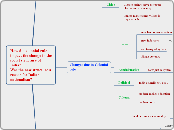da nis rec mancano 17 anni
877
How colonial rule impacted the change in the social structure of India. Was the new structure a reason for Indian nationalism

da nis rec mancano 17 anni
877

Più simili a questo
modern proletariate
working class (working in the new factories)
mainly impoverished peasants and artisans
modern bourgeoisie
landlords
industrialists
new class of money lenders
new class of merchants
Proprietor peasants
Absentee landlords
Zamindar
sell, buy, collateral
free of caste, gender considerations
representation of Indians in services
Civil/criminal courts
Criminal procedure code
jute, steel, cotton mills